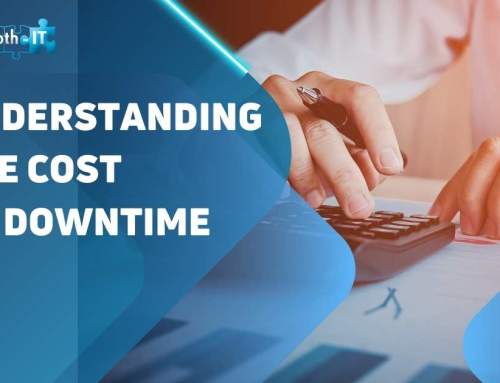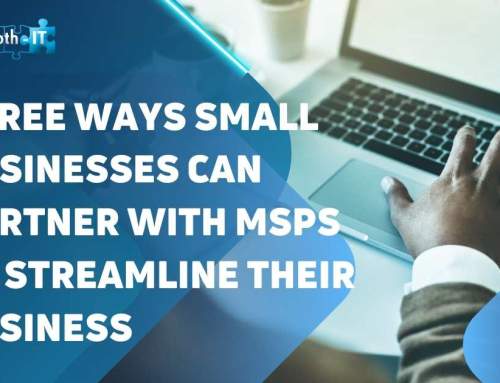You’ve most likely heard someone within your business circle talk about “the cloud” (which actually just refers to one or more datacenters). Those two words are ubiquitous today, and cloud adoption continues to increase. According to this year’s Flexera’s State of the Cloud Report, small businesses spending over $1.2 million on the Cloud annually increased by over 39%, with survey respondents revealing that two-thirds of SMB (small and medium businesses) workloads will be in the Cloud over the next year.
These statistics showcase the ever-increasing reliance on cloud infrastructure. What does all of this mean for you and your business? There are many ways utilizing the Cloud can benefit your business, and the four you see here are just the tip of the iceberg.
How the Cloud can Benefit Small Business
1.) Seamless Remote Work and Collaboration: The first benefit of the Cloud, and perhaps the most obvious to most of us, is the ability for teams to work remotely. A hybrid or completely remote work environment is more common than ever. By utilizing cloud services, team members can communicate, collaborate, and access data from anywhere at any given time. Just as an aside – our team members have been fully remote now for over 6 years, so we have expertise firsthand.
2.) Business Growth: Many cloud services platforms are built on a subscription model that allows users to pay and grow as they go. Perhaps, as a small business, you only need two seats (or licenses) for a particular service, and three years later, you need 20 seats. Many cloud applications operate with tiered pricing structures that cater to your needs as you grow.
3.) Mitigate the Impact of Downtime: For most businesses, a cybersecurity event or technical error is not a matter of “if.” It’s a matter of “when.” When such an event occurs, it disrupts normal business operations. Think about the simplest example. The last time your computer froze, how much did that “cost” you in time and frustration? Imagine your business experiences a technical error or cyber-attack, and you can’t access critical data. How much would it cost your business to be down for days, or more, restoring the data? If you have your data backed up on the Cloud, you’ll reduce downtime, recover your data quickly, and get your business…well…back in business. Pro-Tip: If you do not already know your operational run time cost per hour fully loaded with all expenses you probably want to get that calculated.
4.) Cloud investments result in savings: Last but certainly not least, the Cloud offers financial saving opportunities to small businesses. Money is a factor in all the benefits we’ve mentioned already. Whether you’re better able to grow your business, save on office costs for your workforce, or reduce downtime, you are saving funds. In addition to all of that, cloud infrastructure can be cheaper than investing the amount of hardware it would take to achieve what you can with the Cloud for a more affordable cost.
How to Best Leverage the Cloud
Want to be sure you’re using the Cloud efficiently? The first step is understanding how your IT infrastructure interacts with the Cloud and where opportunities lie for more cloud integrations. Working with a managed service provider, you can carry out such an analysis and receive expert advice on where and how to incorporate cloud services and apps into your technology systems.
Oh, and you have been using “the cloud” for years already. How? E-mail.






Leave A Comment